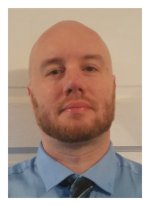By Michael Grignon, LMSW, CCM, MBA
AOSW President
Carlos Santana, the Rolling Stones and Nina Simone.
I have many other therapists too, but this group of artists have created my three go-to songs for when I am feeling frustrated, overwhelmed, defeated and/ or a little burned out. Sometimes I use them quite liberally and frequently quite loudly. As you have probably guessed, music has long been one of my tools for taking care of myself, both as a person and as a professional.
Self-care means different things to all of us. We all have our methods of restoring parts of our spirit that inevitably become scuffed, chipped and worn away by the rigors of our roles as social workers. We can feel that depletion, too. We might be tired, we might find our level of patience low, we might find ourselves “off-balance” or we might even find ourselves a little “numb.”
How does it happen? What is it about our work that can produce such reactions?
Think about it this way: a mechanic uses wrenches and drills; an accountant uses spreadsheets and formulas; an oncology social worker uses their enriched emotional intelligence to connect with people who are experiencing some of the worst of what life can throw at them. Our tools are ourselves, our own mental and emotional energy. Thinking of it that way, is it any wonder, then, that sometimes we feel like our mental and emotional reservoir is nearly tapped?
However, if there is any profession that knows how important it is for a person to be an active participant in their own rescue, it is social work. That is why it is imperative for us to intuitively know our individual signs of emotional fatigue; identify healthy and effective techniques for restoring our emotional energy; and actively “flip the switch,” to turn off the stressful wall of static that can surround us and plug into those activities that will recharge us.
For me, I find renewed energy in listening to or practicing music, writing, practicing a language or reading. All of these activities help to replenish some of what the day as a social worker takes out of me. Sometimes, despite knowing that doing these things is beneficial, I have to give myself a pep talk to do them because it can get easy to slip into a pattern of inactivity.
What about you? In which activities do you engage for self-care? Have they changed throughout your career? Do you sometimes have to push yourself to do them? Do you use them as much as you should?
Always remember that you are important. What you do is valuable and makes a difference. You are an expert in your role. You are an oncology social worker. Take care of yourself and nurture your greatness.

